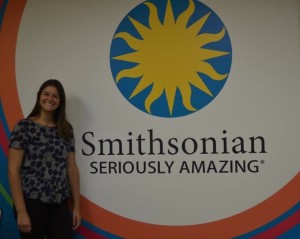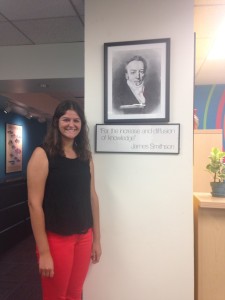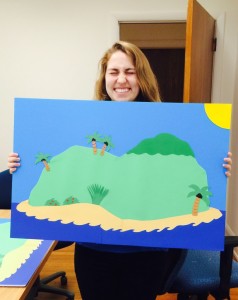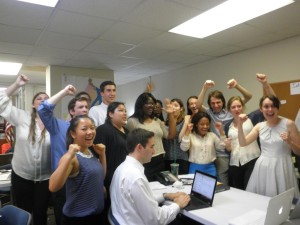I wake up to the misty chill of an Inner Richmond morning. I walk from the guest cottage where I sleep to the neighboring house to listen to eggs sizzle on the stove. After packing up my lunch for the day, I load my things onto my bike and start the trek to work. I’m interning at a nonprofit in downtown San Francisco, and I live in a residential part of the city near the charming, foggy Golden Gate Park. I bike through the park, down a bike path called The Wiggle, and onto busy Market Street. Though my commute starts with the gentle dappled light of the Panhandle, it finishes in the brisk, swanky financial district. I squeeze my bike into the elevator and prop it in a corner of the office while I change into business casual attire, trying to match my bosses’ wardrobes of slacks, nice jeans, skirts,
and blouses with sweaters or blazers.
The other Undergraduate Intern and I have desks in the entrance area. Everyone in the office uses Skype chat communicate, so before I check in verbally with someone on an assignment I Skype them asking if it’s a good time. Each week, we have a conference Skype call with another staff member and a law fellow in the South Asia office. The law fellows and interns listen to get a gist of the cases and take turns updating the team on what we’ve been doing in the past week. 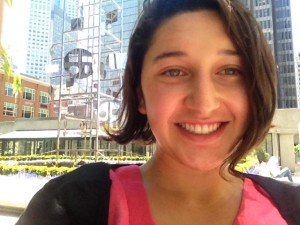
For most of the summer I worked on research memos. I read reports from cases and summarized the relevant aspects in a legal memo format. Sometimes I had a lot of trouble reading through ‘Legalese’ documents to find useful information. By the end of an assignment, I learned a lot about each case, and after a round or two of detailed feedback I felt capable of compiling a clear, useful memo. My favorite part of memo assignments was when a supervisor explained the context of the memo by sharing the progress and history of the case.
It was inspiring and challenging to see the AC team’s conscientiousness on every level of the work. My favorite assignment of the summer was to prepare materials for major edits to the organization’s new promotional video. The Executive Director of AC talked me through the video and which parts they wanted to change. I was delighted when she paused the video after two seconds: “We’re changing that text from ‘Who will speak for them?’ to ‘As they raise their voices in the face of abuse—who is listening?’ We don’t speak for our clients. They speak for themselves.” The edits they had planned produced a video of a completely different framework, from a sob-story charity model to a refreshing and unique advocacy approach. My assignment entailed sifting through 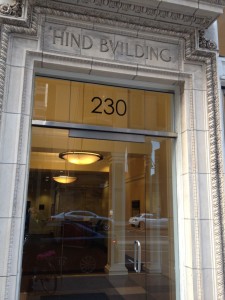 thousands of photos of cases for the best images to fit with particular parts of the video. I observed that my boss was careful to not take up too much space and to emphasize the power of community members to choose how to proceed. She was clear about the services that AC did and did not offer (AC supports communities in a complaint process for access to remedy rather than litigation), and when talking separately to women who had been sexually abused, she was clear that each women could choose whether or not to share their experiences with the complaint investigators, acknowledging that they may not feel safe.
thousands of photos of cases for the best images to fit with particular parts of the video. I observed that my boss was careful to not take up too much space and to emphasize the power of community members to choose how to proceed. She was clear about the services that AC did and did not offer (AC supports communities in a complaint process for access to remedy rather than litigation), and when talking separately to women who had been sexually abused, she was clear that each women could choose whether or not to share their experiences with the complaint investigators, acknowledging that they may not feel safe.
My first office job confirmed that I like group work more than individual and that I love creative work. Trust in the workplace made me comfortable; I trusted the organization, its mission, and the other team members to make smart and conscientious choices, and I was trusted to update the website, hear case updates in staff meetings and in-office eavesdropping (which was explicitly welcomed), and send emails on behalf of AC. We could arrive and leave work when it worked best for us—I got an office key—so I could plan for a safer bike commute to avoid traffic and take a lunch break whenever I needed it. The level of respect for everyone in the (all female!) team was amazing, and the work centered on respecting the rights and choices of people negatively affected by neoliberal power structures.

